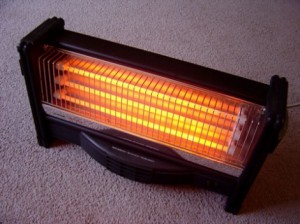 It’s 73 degrees in Ithaca, New York today, according to the thermometer on my minivan. My 7-year-old begged to wear shorts to school today, and soon thereafter reminded me, “It’s still winter mom!” Given such an early spring-feeling day in this northern latitude, I thought it’d be a good time to revisit the evidence on global warming. [Read more…]
It’s 73 degrees in Ithaca, New York today, according to the thermometer on my minivan. My 7-year-old begged to wear shorts to school today, and soon thereafter reminded me, “It’s still winter mom!” Given such an early spring-feeling day in this northern latitude, I thought it’d be a good time to revisit the evidence on global warming. [Read more…]
Revisiting the evidence on climate change
Evidence-based energy: What we really know about hydraulic fracturing
A newer method for extracting natural gas from layers of shale deep below the earth’s surface – called hydraulic fracturing or hydrofracking – has ignited debates across the nation. Proponents say that natural gas key to the country’s energy future. (Burning natural gas produces fewer greenhouse gases emissions than coal and oil.) But opponents say this method for extracting it poses risks to ground water supplies.
Over the past several years, Cornell researchers have mounted an unprecedented response to the issue. They’ve stepped up research efforts to collect and develop as much evidence as possible about hydrofracking. And they are reaching out to help individuals and communities across New York to help them make decisions about the benefits and dangers of drilling.
They have created the Cornell Cooperative Extension Natural Gas Resource Center, which is made of a 12 faculty members from a wide array of disciplines—including sociology, environmental sciences, and geology—and 20 extension educators. The group has compiled information for people impacted by hydraulic fracturing including individuals considering leasing their land, community groups, and local governments.
The Resource Center’s web site is a treasure trove of information on the topic including how geologists use seismic data to determine if natural gas is accessible, how to negotiate a lease for gas drilling and the economic impacts of drilling.
If you live in an area where natural gas drilling is a possibility, you’ll definitely want to dig into this resource.
Portable space heaters: Money-savers or energy-wasters?
 In Ithaca, it seems that the weather took a sudden dip a few weeks ago. Temperatures fell below freezing within a few hours, and it doesn’t look like they’ll warm much until spring. That was our cue to turn on the heat for the season.
In Ithaca, it seems that the weather took a sudden dip a few weeks ago. Temperatures fell below freezing within a few hours, and it doesn’t look like they’ll warm much until spring. That was our cue to turn on the heat for the season.
As much of the northern hemisphere launches into winter, millions of people across the country are firing up their home heating systems – an act that will cost most households hundreds if not thousands of dollars this year.
With those costs comes the natural inclination to save a little money. That’s when many – myself included, occasionally – turn to portable electric space heaters. When there’s a chill in the room, it seems so logical to flip a switch to warm a smaller space, instead of cranking up the heating system for the entire house. But are electric space heaters a good way to reduce your heating costs? The evidence says no.
Mark Pierce, extension associate at Cornell’s College of Human Ecology, is an expert in energy efficiency issues in residential buildings. He conducted a detailed analysis of heating costs in a 1,200-square-foot, three-bedroom house to determine if there is a benefit to using portable electric heaters.
Pierce asked the question, which is more expensive: heating the entire house to 70 degrees for three hours, or heating the house to 60 degrees for three hours and using a space heater to raise the temperature of one room to 70 degrees?
His analysis factored in all sorts of details like the levels of insulation in the floors, walls and ceiling, heat loss through windows and doors, and they type of heating fuel used. He assumed an outside air temperature of 10 degrees.
Using average costs for heating fuels in New York, he found turning down the thermostat from 70 to 60 degrees would reduce heating costs by about 50 to 80 cents, depending on the heating fuel used. Meanwhile, using a portable heater to heat one room from 60 to 70 degrees over the same time period would cost 52 cents – a meager savings, even when using the most expensive heating fuels.
But why is the cost of heating just one room with a space heater so high? Because electricity is about twice as expensive as fossil fuels, Pierce explains.
“Electricity is more expensive because it is a secondary form of energy, meaning that a primary form of energy – burning fossil fuels to power a generator for example – must first be consumed to make electricity,” he writes. “By the time electricity gets to your home from a power plant, about 70 percent of the energy consumed to create it has been lost due to generation and distribution system inefficiencies.”
Instead, Pierce recommends other ways to reduce your heating bills, such as adding insulation to your floors, walls and ceilings, installing a more efficient heating system and sealing holes and cracks around doors, windows and electrical outlets.
You can read more evidence-based tips about reducing your home heating bills by clicking here. Wishing you a warm and cozy winter!


